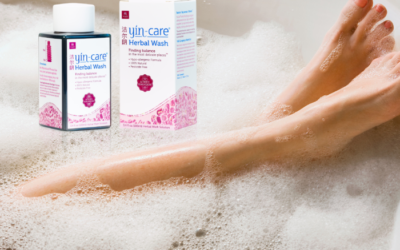The Best Herbs and Supplements for Menopausal Symptoms
Menopause is a time of transition, a time of change, and for many women, a time of overwhelming hormonal imbalance. The hot flashes that leave you drenched, the mood swings that rival a teenager’s, the night sweats that disrupt your sleep – these are all common menopausal symptoms caused by fluctuating levels of female hormones like estrogen and progesterone.
Understanding and balancing female hormones is essential for managing these symptoms and maintaining overall wellness, as dysregulation can arise from stress, diet, exercise, and environmental factors. While hormone replacement therapy (HRT) can be helpful, many women prefer more natural ways to balance hormones and ease the challenges of this life stage.
Turns out, nature has been addressing hormonal imbalances for centuries. Herbal medicine offers a treasure trove of herbs believed to support hormone balance, reduce menopausal symptoms, and promote overall reproductive health.
This article will explore the world of natural plant medicine and how these herbs might help you navigate the hormonal shifts of menopause and beyond.
What is Hormonal Imbalance?
Your hormones are powerful chemical messengers produced by your endocrine system. They travel through your bloodstream, orchestrating everything from your menstrual cycle and metabolism to your mood and sleep patterns. When your hormones are in sync, you tend to feel your best. But when they fall out of balance – too much, too little, or at the wrong time – it can throw your entire system into disarray. That’s what we call hormonal imbalance.
Hormonal imbalances can strike at any life stage but are particularly common during times of significant hormonal shifts, like puberty, pregnancy, and of course, menopause. However, factors like stress, poor diet, lack of sleep, and exposure to environmental toxins (like hormone-disrupting chemicals in some products) can tip the delicate hormonal balance for anyone. This imbalance can lead to conditions such as premenstrual syndrome (PMS), exemplifying how hormonal dysregulation can manifest in symptoms and conditions related to women’s reproductive health.
Symptoms of Hormonal Imbalance
While menopause gets much of the spotlight, hormonal imbalances can affect women of all ages, manifesting in a variety of ways:
- Menstrual Irregularities: Missed periods, heavy bleeding, or irregular cycles can all signal a hormone imbalance.
- PMS Symptoms: Intensified mood swings, breast pain, bloating, and fatigue might point to hormonal fluctuations during your cycle.
- Weight Changes: Unexplained weight gain or difficulty losing weight can be linked to hormone imbalances.
- Sleep Issues: Trouble falling asleep or staying asleep is often connected to hormonal shifts.
- Other Changes: Changes in energy levels, brain fog, hair loss, skin problems (acne), and decreased libido can also be signs of a hormone imbalance.
Conditions Related to Hormone Imbalance
In some cases, ongoing hormonal imbalances may be linked to underlying conditions like:
- Polycystic Ovary Syndrome (PCOS): PCOS is characterized by excess hormones, often causing irregular periods, acne, and weight gain.
- Thyroid Disorders: Your thyroid gland is a major player in hormone production. Both an overactive (hyperthyroidism) or underactive thyroid (hypothyroidism) can wreak havoc on your hormonal balance.
Herbs for Balancing Hormones Naturally
For centuries, traditional medicine systems worldwide have utilized herbs to support female reproductive health and address hormonal imbalances. While scientific research is ongoing, here are some herbs that show promise in easing menopausal symptoms, regulating cycles, and promoting overall hormonal harmony:
Chaste Tree Berry (Vitex agnus-castus): This little berry influences your pituitary gland, the master conductor of your hormonal orchestra. It may help regulate prolactin levels, easing PMS symptoms, and potentially reducing menopausal discomforts like hot flashes.
Black Cohosh: Consider this your hot flash fighter. Studies suggest that black cohosh may be particularly helpful in managing hot flashes and night sweats associated with menopause.
Dong Quai: Hailed as a “female tonic” in traditional Chinese medicine, dong quai is thought to support a healthy menstrual cycle and overall reproductive health. It might offer benefits for PMS and some menopausal symptoms.
Ashwagandha: This adaptogenic herb helps your body cope with stress, a significant disruptor of hormonal balance. By promoting stress resilience, ashwagandha indirectly supports hormonal harmony, potentially easing anxiety and improving sleep quality.
Maca Root: This Peruvian superfood is a powerhouse of vital nutrients. It might boost energy levels, support a healthy libido, and contribute to overall hormonal balance, making the transitions of menopause a little smoother.
Red Clover: This flowering plant contains phytoestrogens, plant-based compounds that can mimic the effects of estrogen in your body. This might offer some relief from menopausal symptoms linked to declining estrogen levels.
Licorice Root: While best known for its digestive benefits, licorice root also has potential mild estrogenic effects and might help regulate cortisol, your stress hormone.
Evening Primrose Oil: This oil is rich in gamma-linolenic acid (GLA), an omega-6 fatty acid that reduces inflammation. GLA may alleviate PMS symptoms and other menstrual-related discomforts.
Important Note: It’s important to consult a healthcare provider before starting any new herb, especially if you have underlying health conditions or take medications. Herbs can interact with medications or have side effects for some individuals.
Supplements for Hormonal Support
While herbs offer valuable support, certain supplements can also play a role in promoting hormonal balance and reducing bothersome symptoms:
DIM (Diindolylmethane): Found in cruciferous vegetables like broccoli and kale, DIM supports healthy estrogen metabolism. This means it can help your body process and eliminate excess hormones, which can be beneficial in managing conditions linked to estrogen dominance.
Magnesium: This essential mineral is a true relaxant for your body and mind. Magnesium is crucial for managing stress, easing muscle tension, and promoting sleep–all vital for hormonal balance. It’s especially helpful for those pesky PMS symptoms.
Omega-3 Fatty Acids: These healthy fats found in fish oil are big-time inflammation fighters. Inflammation disrupts many processes in your body, including hormone production and regulation. Omega-3s could play a role in supporting overall hormonal health and reducing symptoms worsened by inflammation.
Other Potentially Helpful Supplements
Preliminary research suggests that certain vitamins and nutrients might also support hormonal balance, including:
Vitamin D: Vitamin D deficiency has been linked to hormonal imbalances.
B Vitamins: These vitamins are crucial for hormone production and overall health.
Zinc: This mineral plays a role in hormone production and may support a healthy menstrual cycle.
Important Considerations
The Power of Lifestyle Changes
While herbs and supplements can be incredibly helpful, long-term hormonal balance often requires a holistic approach. Here are some healthy habits that will help you maintain hormone balance:
Balanced Diet: Focus on whole foods, plenty of fruits and vegetables, and limit processed foods and refined sugars. Consider incorporating foods that might support hormonal balance, such as flaxseeds and soy products.
Regular Exercise: Exercise helps manage stress, boosts mood, supports a healthy weight, and promotes overall health – all important for keeping hormones happy.
Stress Management: Find healthy ways to manage stress, like yoga, meditation, or spending time in nature. Chronic stress wreaks havoc on your hormonal balance.
Quality Sleep: Aim for 7-8 hours of restful sleep each night. Sleep deprivation disrupts hormone production and can worsen menopausal symptoms.
Gut Health: A healthy gut microbiome is crucial for proper hormone elimination and detoxification within your liver. Support your gut with probiotics and fiber-rich foods.
Potential Side Effects and Interactions
Herbs, even natural ones, can sometimes have side effects or interact with medications. This is why consulting your healthcare provider before starting any new supplement regimen is important. They can help you choose the best options and avoid any potential issues.
Choosing Quality Products
Not all supplements are created equal. Look for reputable brands that use high-quality ingredients and ideally, have third-party certifications to ensure purity and potency. Your trusted healthcare provider or a knowledgeable supplement retailer like AcuAtlanta can guide you in finding the safest and most effective options.
Hormonal Harmony is Within Your Reach
Navigating the hormonal shifts of menopause or other life phases can feel overwhelming. But nature’s pharmacy, in combination with a healthy lifestyle, offers support in the form of herbs and supplements that may help ease symptoms, promote hormonal balance, and support overall well-being.
While these natural remedies might not be a magic bullet, they can be valuable tools in your journey to feeling more like yourself.

Adelena completed her undergraduate degree at Buffalo State University, where she majored in Health and Wellness along with a Pre-Medicine discipline. She graduated with honors along with many scholar athlete awards. She then went on to Southwest College of Naturopathic Medicine in Tempe, Arizona, where she successfully completed her Doctorate in Naturopathic Medicine. Adelena always had a passion for alternative/integrative medicine as she was raised amongst chiropractors and grew up in Europe.
Many of the patients that Adelena works with, typically present with a long list of medications, previously diagnosed chronic conditions and having worked with many other practitioners in the past without success. Their goals are to evaluate their health and find the reason they may feel the way they do.
She aids patients in finding the root cause of their concerns through state of the art diagnostic testing. With this, it allows her to educate patients about what is going on in their body at a cellular level and adjust certain aspects of their diet and lifestyle. I particularly specialize in chronic conditions and hormone management.
As someone who has been through the traditional medical system, Adelena strives to provide exceptional care and help you take your life into your own hands. With that you can achieve optimal wellness and feel like yourself again.



